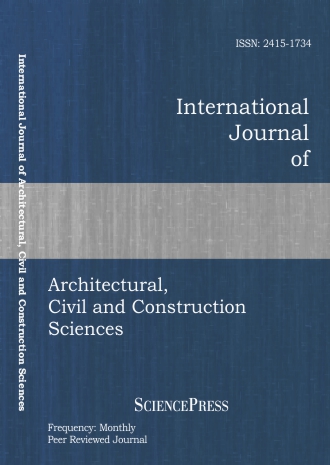
Scholarly
Volume:9, Issue: 3, 2015 Page No: 277 - 282
International Journal of Architectural, Civil and Construction Sciences
ISSN: 2415-1734
Fatigue Tests of New Assembly Bolt Connections for Perspective Temporary Steel Railway Bridges
The paper deals with the problems of the actual
behavior, failure mechanism and load-carrying capacity of the special
bolt connection developed and intended for the assembly connections
of truss main girders of perspective railway temporary steel bridges.
Within the framework of this problem solution, several types of
structural details of assembly joints have been considered as the
conceptual structural design. Based on the preliminary evaluation of
advantages or disadvantages of these ones, in principle two basic
structural configurations – so-called “tooth” and “splice-plate”
connections have been selected for the subsequent detailed
investigation. This investigation is mainly based on the experimental
verification of the actual behavior, strain and failure mechanism and
corresponding strength of the connection, and on its numerical
modeling using FEM. This paper is focused only on the cyclic
loading (fatigue) tests results of “splice-plate” connections and their
evaluation, which have already been finished. Simultaneously with
the fatigue tests, the static loading tests have been realized too, but
these ones, as well as FEM numerical modeling, are not the subject of
this paper.